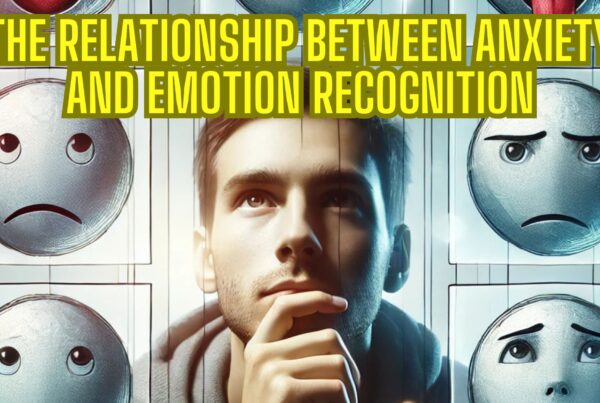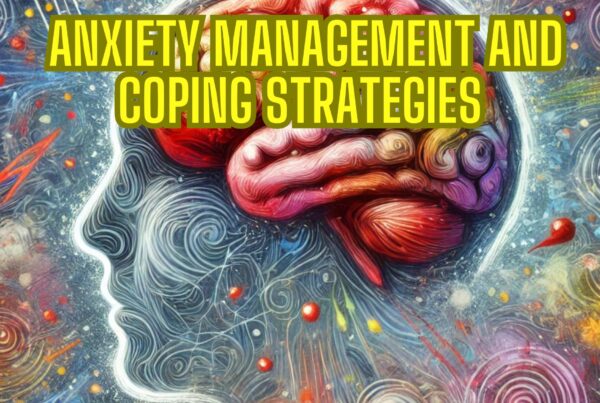Coping with Holiday Stress and Depression
The holiday season is often celebrated as a time of joy, togetherness, and celebration. Yet, for many, it can bring an unexpected wave of emotional challenges. Coping with Holiday Stress and Depression is a reality faced by countless individuals who navigate the pressures of financial demands, social expectations, and personal loss during this time. Whether it’s the strain of maintaining traditions, managing complex family dynamics, or simply feeling overwhelmed by the busyness of the season, it’s essential to acknowledge these challenges and take proactive steps to address them. By understanding the roots of holiday stress and adopting practical strategies, it’s possible to embrace the season with a sense of balance, peace, and genuine connection.
Understanding Holiday Depression and Stress
The festive season, often depicted as a time of joy and togetherness, can paradoxically usher in feelings of depression and stress for many individuals. This phenomenon, commonly referred to as the “holiday blues,” encompasses a range of emotions from mild sadness to profound anxiety. Recognizing the prevalence and impact of these feelings is the first step towards addressing them effectively.
Several factors contribute to the onset of holiday depression and stress. Financial pressures, such as the expectation to purchase gifts or host gatherings, can strain budgets and lead to anxiety. Social obligations may become overwhelming, especially when juggling multiple events or navigating complex family dynamics. Additionally, the season can amplify feelings of loneliness for those separated from loved ones or grieving a loss. Understanding these triggers is essential in developing coping mechanisms to manage holiday-related stress.
Identifying the Symptoms of Holiday Blues
Recognizing the signs of holiday depression is crucial for timely intervention. Common symptoms include persistent sadness, fatigue, changes in sleep patterns, and a lack of interest in activities once enjoyed. Individuals may also experience heightened irritability, difficulty concentrating, and feelings of worthlessness or guilt. Physical symptoms, such as headaches or digestive issues, can also manifest. Being aware of these indicators allows for early action to mitigate the effects of holiday stress.
It’s important to distinguish between temporary holiday blues and more severe mental health conditions. While both share similar symptoms, the duration and intensity differ. Holiday blues are typically short-lived, resolving after the season ends, whereas conditions like clinical depression persist beyond the holidays and may require professional treatment. Understanding this distinction ensures appropriate measures are taken to address one’s mental health needs.
Setting Realistic Expectations
The pressure to create a perfect holiday experience can be overwhelming. Striving for perfection often leads to disappointment and increased stress when reality falls short of idealized expectations. Acknowledging that imperfections are a natural part of life can alleviate this pressure. Embracing the holiday season with a flexible mindset allows for a more authentic and enjoyable experience.
To manage expectations, it’s helpful to focus on what truly matters during the holidays. Prioritising meaningful connections and personal well-being over material aspects can lead to a more fulfilling experience. Setting achievable goals and being kind to oneself when things don’t go as planned fosters a healthier approach to the festive season.
Planning and Organisation
Effective planning can significantly reduce holiday-related stress. Creating a schedule that outlines tasks such as shopping, cooking, and attending events helps manage time efficiently and prevents last-minute rushes. Utilising tools like calendars or digital apps can aid in organising activities and setting reminders for important dates.
Delegating responsibilities is another key aspect of reducing stress. Involving family members in preparations not only lightens the workload but also fosters a sense of togetherness and shared accomplishment. For example, assigning specific tasks like decorating, gift wrapping, or preparing certain dishes can transform holiday chores into collaborative experiences.
Maintaining Healthy Lifestyle Choices
Amidst the indulgences of the festive season, maintaining healthy habits is vital for mental and physical well-being. Regular exercise, even in moderate forms like walking, can alleviate stress and improve mood by releasing endorphins. Incorporating physical activity into daily routines helps counteract the lethargy that often accompanies holiday blues.
Balanced nutrition plays a crucial role in sustaining energy levels and emotional stability. While it’s natural to enjoy holiday treats, moderation is key. Consuming a diet rich in fruits, vegetables, and whole grains supports overall health. Additionally, limiting alcohol intake is advisable, as excessive consumption can exacerbate feelings of depression and disrupt sleep patterns.
Seeking Social Support
Connecting with others provides emotional sustenance during the holidays. Engaging in social activities, whether through family gatherings, community events, or virtual meet-ups, fosters a sense of belonging and reduces feelings of isolation. Sharing experiences and emotions with trusted individuals can provide comfort and perspective.
For those who may not have immediate social circles, participating in community events or volunteering offers opportunities to build connections. Engaging in acts of kindness not only benefits others but also enhances one’s own sense of purpose and fulfillment during the holiday season.
Practising Financial Mindfulness
Financial concerns are a common source of holiday stress. The pressure to buy extravagant gifts, host lavish gatherings, or participate in expensive activities can quickly overwhelm budgets. Adopting a mindful approach to spending is essential for reducing financial strain.
Start by setting a realistic holiday budget and sticking to it. List all potential expenses, including gifts, travel, food, and decorations, and allocate funds accordingly. Avoid impulsive purchases by planning gifts in advance and seeking out sales or discounts. Homemade gifts or thoughtful gestures, such as personalised cards, can be equally meaningful while being budget-friendly.
Coping with Loneliness and Grief
The holidays can intensify feelings of loneliness, especially for those who have experienced loss. Acknowledging these emotions rather than suppressing them is a healthy step towards healing. Allowing oneself to grieve and seeking support from friends, family, or support groups can provide comfort.
Creating new traditions in honor of absent loved ones can also be therapeutic. Whether it’s lighting a candle, sharing stories, or engaging in an activity they enjoyed, these acts can keep their memory alive and provide a sense of connection during the festive season.
Virtual connections through video calls, messaging apps, or social media can bridge the distance and create opportunities for meaningful interactions. Volunteering with local charities or community organisations is another excellent way to combat loneliness, as helping others fosters a sense of purpose and belonging.
Setting Boundaries and Saying No
The multitude of holiday commitments can lead to burnout if not managed properly. It’s important to recognize one’s limits and set boundaries accordingly. Politely declining invitations or delegating tasks when overwhelmed is acceptable and necessary for maintaining mental health.
Communicating openly with family and friends about one’s needs and limitations fosters understanding and reduces the pressure to meet all expectations. Prioritizing self-care and allowing time for rest ensures a more balanced and enjoyable holiday experience.
Embracing Imperfection and Letting Go
Accepting that perfection is unattainable allows for a more authentic and enjoyable holiday experience. Embracing imperfections, whether in oneself, others, or circumstances, reduces stress and fosters a more relaxed atmosphere.
Letting go of rigid expectations and being open to spontaneity can lead to unexpected joys. Allowing the holiday season to unfold naturally, with all its imperfections, often results in more meaningful and memorable experiences.
Prioritising Self-Care
The hustle and bustle of the festive season often leave little room for self-care. However, prioritising personal well-being is vital for managing stress and maintaining a positive outlook. Simple practices like ensuring adequate sleep, eating balanced meals, and staying hydrated can significantly impact mood and energy levels.
Practicing Mindfulness and Relaxation Techniques
Incorporating mindfulness practices into daily routines can help manage stress and enhance emotional well-being during the holidays. Techniques such as meditation, deep breathing exercises, or yoga promote relaxation and present-moment awareness, reducing anxiety and improving mood.
Setting aside time each day for these practices, even if only for a few minutes, can create a sense of calm amidst the holiday hustle. Additionally, engaging in activities that bring joy and relaxation, such as reading, listening to music, or spending time in nature, contributes to overall well-being.
Finding Joy in Simple Moments
Amidst the whirlwind of holiday preparations and obligations, it’s easy to overlook the beauty of simple moments. Whether it’s the warmth of a loved one’s smile, the aroma of freshly baked treats, or the sparkle of holiday lights, these small joys can bring immense comfort and happiness.
Cultivating a mindset of appreciation for life’s little pleasures enhances your overall experience of the season. Pause to savour these moments, and let them remind you of the deeper meaning and magic of the holidays.
FAQs
- How can I reduce holiday stress when I have a busy schedule? Focus on prioritisation and time management. Break tasks into smaller steps, delegate when possible, and schedule downtime for self-care. Setting boundaries for commitments is also crucial.
- What should I do if family gatherings are a source of anxiety? Set clear boundaries, such as time limits for visits or topics to avoid discussing. Choose neutral locations if necessary, and don’t hesitate to decline invitations if they compromise your well-being.
- How can I manage financial stress during the holidays? Create a realistic budget, stick to it, and explore cost-effective alternatives like homemade gifts or shared meals. Open communication about spending limits with loved ones can also reduce pressure.
- What are some quick ways to practice self-care during the holidays? Short walks, deep breathing exercises, and moments of quiet reflection can provide immediate relief. Prioritise restful sleep, balanced meals, and hydration for overall well-being.
- How can I help a loved one experiencing holiday depression? Offer a listening ear, validate their feelings, and encourage professional help if needed. Simple gestures, such as spending quality time together, can also provide comfort and support.
- What if I feel lonely during the holidays? Reach out to friends, family, or support groups, even virtually. Consider volunteering or participating in community events to build connections and combat isolation.
Coping with Holiday Stress
Coping with holiday depression and stress requires a proactive and compassionate approach. By setting realistic expectations, prioritising self-care, and embracing gratitude, you can navigate the festive season with greater resilience and joy. Remember, the holidays are an opportunity to connect, reflect, and celebrate in ways that bring genuine fulfilment. With the right strategies, you can transform holiday challenges into moments of peace and positivity, creating a season to cherish.
Release Hypnosis Melbourne Hypnotherapy
Since 2015, Lawrence Akers has been working under the name Release Hypnosis offering Hypnotherapy and ACT based work to the people of Melbourne or an online service. Based on St Kilda Rd, Release Hypnosis is an easy and convenient location to get to and accessible by the ANZAC station train and tram stop. Release Hypnosis can help with a wide range of presenting issues, and I offer a free 30 minute no obligation discovery call for those who are unsure if hypnotherapy is the right way forward for them.
Book Your FREE 30 Minute Consultation With Release Hypnosis NOW!
You may also like to read:
Hypnotherapy: A Guide to Healing Through the Subconscious
The Neuroscience of Gratitude and Effects on the Brain: Unlocking Mental Resilience
Best Hypnotherapy Resources 2024: Release Hypnosis Top Blogs
What Is The Success Rate of Hypnosis?








